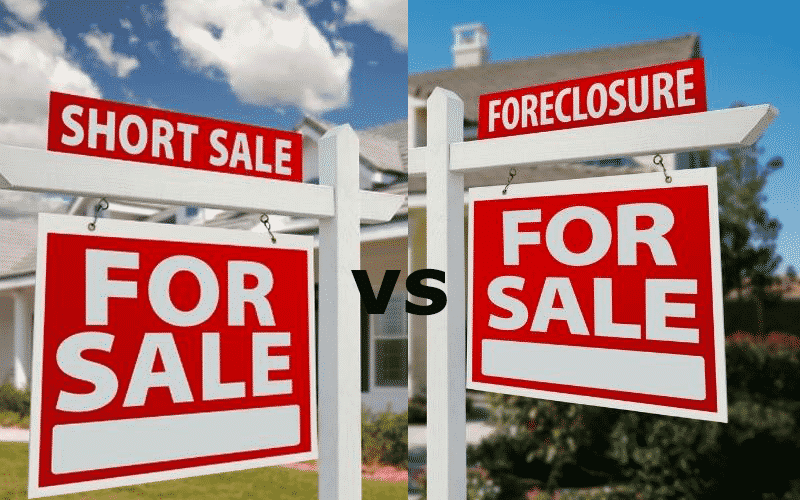
Short sales occur when a lender permits the sale of a borrower’s house in an amount less than the remaining balance. The result is that the seller avoids foreclosure. The homeowner no longer bears responsibility for the loan once the short sale has been finalized and the lender has agreed to the terms of the short sale.
In the event of a bank or other financial institution taking possession of a home without the owner’s consent, this is known as a foreclosure. In the event of nonpayment, the bank has the right to seize and sell the property in question.
Short sale procedures
In some cases, short sales are a win-win situation for everyone concerned. Buyers benefit from greater investment prospects and less financial ramifications for lenders and sellers if the homes are foreclosed on.
Essentially, the homeowner is requesting the lending institution to take less than the full amount of the mortgage. Suppose a homeowner sells their property for $500,000, but the outstanding loan total is $580,000; in this case, the homeowner falls around $50,000 “short” of repaying the lender’s money. That’s what’s known as a short sale.
Unlike foreclosure, a short sale has significantly less of an impact on your credit score. When it comes to buying another home, persons who have gone through the short sale procedure may typically do it immediately, but getting a second mortgage may be more difficult.
Foreclosure procedure
Borrowers who get a Notice of Default might attempt to resolve their loan debt with their lender through a short sale or by making a lump-sum payment on their mortgage debt. Following receipt of a Notice of Default, a period of time known as “pre-foreclosure” may extend for 30 to 120 days. Thereafter, debt collectors will step in and foreclose on the property if they cannot recover their money.
Not everyone should invest in a bank-owned property. In order to minimize their losses, lenders are trying to reclaim as much of the debt as possible. For municipal auctions, when properties are auctioned owing to tax liens, the goal is to sell the property as quickly and for the most money as they can and get it out of their hands. It is not in the interests of banks and municipalities to act as landlords.
Real estate in distress is frequently marketed “as-is.” A pre-purchase inspection and tour of the property are usually not available in most circumstances. If you’re looking for a property in foreclosure, you’ll need to make a cash payment at the time of purchase.
Foreclosures appear on a person’s credit report for seven years, which might damage their credit score. Also, you’ll have to wait for five years before you can buy a new home.
Pros and cons of short sale
Pros
- When compared to foreclosed homes, properties in short sales are often in better shape. Many people on these properties are making every effort to repair their credit as much as feasible. They’ve probably taken care of things like electricity and plumbing.
- Less competition: Short-sale properties face less competition than foreclosed residences. There are a lot of homebuyers who are apprehensive about the procedure and don’t want to deal with a bank.
- In terms of price, short-sale properties might be a terrific investment because they sell for less than market value.
Cons
- Deteriorated condition: Homeowners in a short sale scenario are typically in financial distress, and their property may have a significant number of neglected maintenance concerns that must be handled promptly.
- Long procedure: Due to the number of lienholders involved in a short sale, the process might take longer than a normal house sale. Bank approval is required before any transaction may take place if there are other liens on a property.
- Risk of losing the property: Because short sales are being offered “as-is,” there is an elevated level of risk involved in making a purchase. After paying the outstanding debt, it might turn out that the existing owner has decided to pay the debt and keep the house. Due diligence and inspection, money that the buyer has paid for will be lost.
- Requires a lot of work: Purchase of a short sale property may include a significant amount of due diligence, obtaining documents, and regular communication with the bank, realtors, and other third parties. This takes a lot of effort and energy.
Pros and cons of foreclosure
Pros
- Foreclosed homes are often sold at a discount.
- When a homeowner is financially stressed, they may have overdue taxes or liens on their property. The bank clears the title of debts in a foreclosure.
- Due to the fact that most foreclosed properties are sold as-is with a cash transaction, the sale process is quicker than a short sale.
Cons
- Poor condition: When a home is under foreclosure, the owner is likely to have had some serious financial difficulties and to have ignored or abandoned the property.
- Preferential treatment for cash buyers: When acquiring a foreclosed house, cash purchasers are preferred. This might be the most difficult obstacle to overcome. It is likely that buyers will require a substantial amount of money to buy the house and to cover the restoration expenditures.
In summary
If you own a property but find yourself in financial difficulty, short sale or foreclosure may be a possibility for you. In terms of execution, however, they differ significantly. A short sale is an acceptance by a lender for the sale of a home for less than the amount owed. In the case of a foreclosure, lenders take possession of a home even if the owner does not want to do so.
When a short sale is approved by the lender, the homeowner may walk away knowing their credit report won’t be tarnished, and the new owner gets a lovely home at a discount. However, a foreclosure will appear on your credit record for seven years after the fact.







